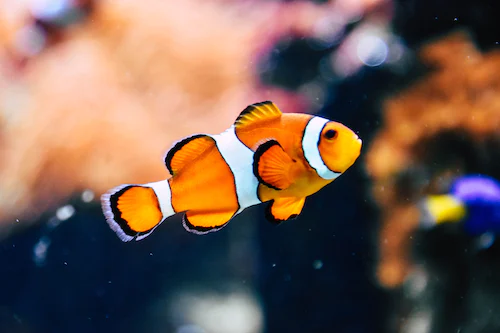Can a Vegan Eat Fish?
No, a vegan cannot eat fish. Veganism is the practice of abstaining from the consumption and use of animal products. Fish are animals, and consuming them goes against the principles of veganism. Therefore, a vegan diet excludes all forms of fish and seafood.
Ethical Considerations
Ethics play a significant role in the vegan lifestyle. Vegans believe that animals are sentient beings with the capacity to feel pain, pleasure, and emotions. Therefore, the consumption of animals and their by-products is seen as a form of exploitation and harm. When it comes to fish, the fishing industry is known to cause immense suffering and destruction to aquatic ecosystems. Overfishing, bycatch, and the use of destructive fishing methods all contribute to the death and suffering of countless marine animals each year.
Nutritional Considerations
While fish are often touted for their high protein and omega-3 fatty acid content, there are many plant-based sources of these nutrients. Vegans can obtain protein from sources such as tofu, lentils, and beans, while omega-3 fatty acids can be found in chia seeds, flaxseeds, and walnuts. Additionally, many vegan supplements are available that provide these nutrients in a convenient form.
Environmental Considerations
Fish consumption has a significant impact on the environment. Overfishing, bycatch, and destructive fishing methods have led to a decline in fish populations and the destruction of marine ecosystems. Additionally, fish farms, where fish are raised in crowded and unsanitary conditions, can have negative environmental consequences. These farms can pollute waterways with contaminants, and the waste produced by these farms can contribute to nutrient pollution in surrounding waters.
The Ethics of Fish Consumption
Some individuals argue that consuming fish is ethical because fish do not have the same level of cognitive ability and sentience as mammals, such as cows or pigs. However, studies have shown that fish are intelligent animals with complex social structures and communication systems. Additionally, the fishing industry is known to cause immense suffering and destruction to aquatic ecosystems.
The Nutritional Value of Fish
Fish are often touted for their high protein and omega-3 fatty acid content. However, there are many plant-based sources of these nutrients that are equally as nutritious. For example, tofu, lentils, and beans are excellent sources of protein, while chia seeds, flaxseeds, and walnuts are high in omega-3 fatty acids.
The Environmental Impact of Fish Consumption
Fish consumption has a significant impact on the environment. Overfishing, bycatch, and destructive fishing methods have led to a decline in fish populations and the destruction of marine ecosystems. Additionally, fish farms, where fish are raised in crowded and unsanitary conditions, can have negative environmental consequences.
Alternatives to Eating Fish
For individuals who are concerned about the ethical and environmental impact of consuming fish, there are many plant-based alternatives available. These alternatives are often healthier, more sustainable, and cruelty-free. Some examples of vegan seafood alternatives include plant-based fish fillets, shrimp, and tuna made from soy, peas, or other plant-based proteins.
Health Risks Associated with Fish Consumption
While fish are often touted for their health benefits, there are also potential risks associated with consuming them. Fish can contain high levels of mercury, PCBs, and other toxins, which can have negative impacts on human health. Pregnant women and young children are particularly vulnerable to these risks and are advised to limit their consumption of certain types of fish.
Cultural and Historical Significance of Fish Consumption
Fish consumption has played a significant role in many cultures and societies throughout history. Fishing has provided a source of livelihood for many communities, and fish have been an important food source for many populations. Additionally, fish and seafood dishes are often a staple in many cultural cuisines.
Personal Choice and Values in Fish Consumption
Ultimately, the decision to consume fish or adopt a vegan diet is a personal choice that reflects an individual’s values and beliefs. Some individuals may choose to consume fish for their health benefits, while others may choose to abstain due to ethical and environmental concerns. It is important for individuals to consider the impacts of their food choices on the environment, animal welfare, and human health when making decisions about their diet.
In conclusion, the decision to consume fish is a personal one that reflects an individual’s values and beliefs. While fish are often touted for their health benefits, there are also significant ethical and environmental concerns associated with their consumption. Veganism continues to grow as a popular lifestyle choice for individuals who are concerned about these issues, and there are many plant-based alternatives available that are healthier, more sustainable, and cruelty-free.
Conclusion
In conclusion, a vegan diet excludes all forms of animal products, including fish and seafood. Fish consumption has significant ethical and environmental implications, and there are many plant-based alternatives available that are healthier, more sustainable, and cruelty-free. As individuals become more aware of the negative impacts of animal agriculture and fishing, veganism continues to grow as a popular lifestyle choice.

